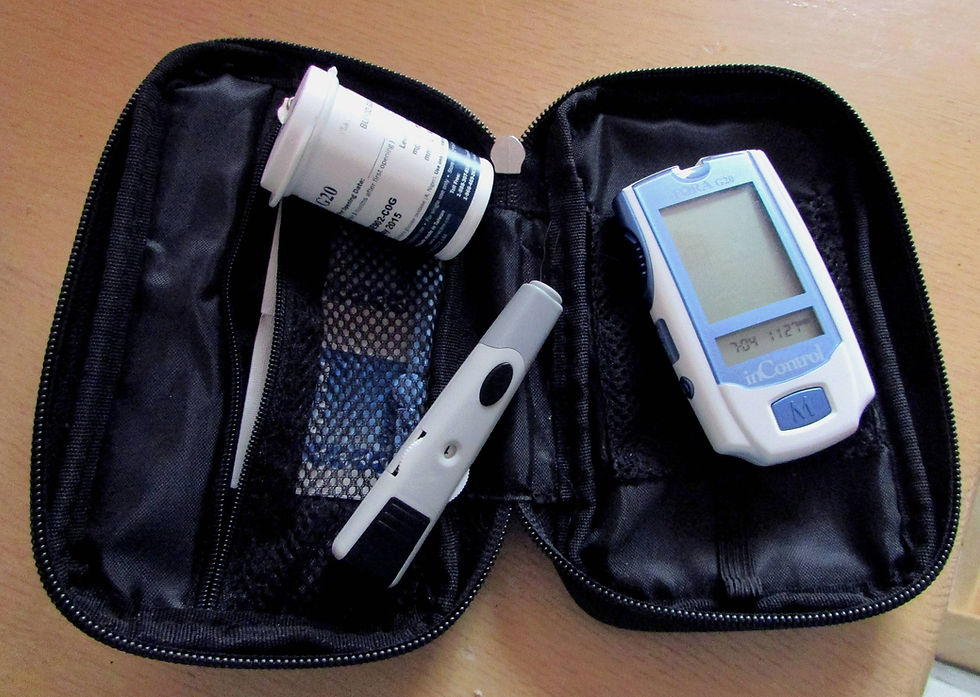The Ketogenic Diet: A Deep Dive
- Don
- May 4
- 3 min read
The ketogenic diet, often simply called "keto," has gained significant popularity in recent years. This high-fat, very-low-carbohydrate eating plan has been shown to have various health benefits, particularly for weight loss and certain medical conditions.
What is the Keto Diet?
The keto diet drastically reduces carbohydrate intake, forcing the body to shift its primary fuel source from glucose (derived from carbohydrates) to ketones. Ketones are produced in the liver when the body breaks down fats for energy. This metabolic state is known as ketosis.
Key Principles of the Keto Diet:
High Fat: The keto diet emphasizes the consumption of healthy fats, such as:
Avocados
Nuts and seeds
Olive oil
Coconut oil
Fatty fish
Full-fat dairy
Moderate Protein: Protein intake is moderate, while avoiding excessive protein intake, as excess protein can be converted into glucose.
Very Low Carbohydrates: Carbohydrate intake is severely restricted, typically to 20-50 grams per day. This eliminates most grains, starchy vegetables, fruits, and sugary foods.
Foods to Avoid on the Keto Diet:
Grains: Bread, pasta, rice, cereals
Starchy Vegetables: Potatoes, corn, peas
Sugary Foods: Candy, soda, juice, desserts
Most Fruits: High-sugar fruits like bananas, grapes, and mangoes
Legumes: Beans, lentils, peas
Processed Foods: Most processed foods are high in carbohydrates and unhealthy fats.
Foods to Include on the Keto Diet:
Meat: Beef, chicken, pork, fish
Eggs
Low-Carb Vegetables: Leafy greens, broccoli, cauliflower, Brussels sprouts, asparagus
Healthy Fats: Avocados, nuts, seeds, olive oil, coconut oil
Full-Fat Dairy: Butter, cheese, cream
Potential Benefits of Keto Diet:
Weight Loss: By shifting the body's primary fuel source to fat, the keto diet can promote significant weight loss.
Improved Blood Sugar Control: The keto diet can be effective in improving blood sugar control in individuals with type 2 diabetes.
Increased Energy Levels: Many people report increased energy levels and reduced fatigue on the keto diet.
Improved Cognitive Function: Some studies suggest that the keto diet may improve cognitive function and reduce the risk of neurodegenerative diseases.
Reduced Risk of Heart Disease: The keto diet can help lower blood pressure and triglyceride levels, which are risk factors for heart disease.
Potential Risks and Side Effects of Keto Diet:
"Keto Flu": In the initial stages of the keto diet, some individuals may experience flu-like symptoms, including fatigue, headache, nausea, and difficulty concentrating. These symptoms typically subside within a few days as the body adapts to burning fat for fuel.
Nutrient Deficiencies: Restricting certain food groups can increase the risk of nutrient deficiencies, particularly in vitamins and minerals.
Digestive Issues: Some people may experience constipation or diarrhea on the keto diet.
Kidney Stones: The keto diet can increase the risk of kidney stones in susceptible individuals.
Sustainability: The keto diet can be challenging to maintain long-term due to its restrictive nature.
Important Considerations:
Consult with a Healthcare Professional: Before starting the keto diet, it is essential to consult with a doctor or registered dietitian. They can assess your individual health needs and determine if the keto diet is appropriate for you.
Individualized Approach: The keto diet may not be suitable for everyone. People with certain medical conditions, such as liver or kidney disease, should avoid or modify the keto diet.
Focus on Whole Foods: Prioritize whole, unprocessed foods on the keto diet.
Hydration: Drink plenty of water throughout the day to stay hydrated.
Listen to Your Body: Pay attention to how you feel on the keto diet. If you experience any adverse effects, consult with a healthcare professional.
Conclusion:
The ketogenic diet can be an effective tool for weight loss and may offer other health benefits. However, it is essential to approach the keto diet with caution and under the guidance of a healthcare professional.



Comments